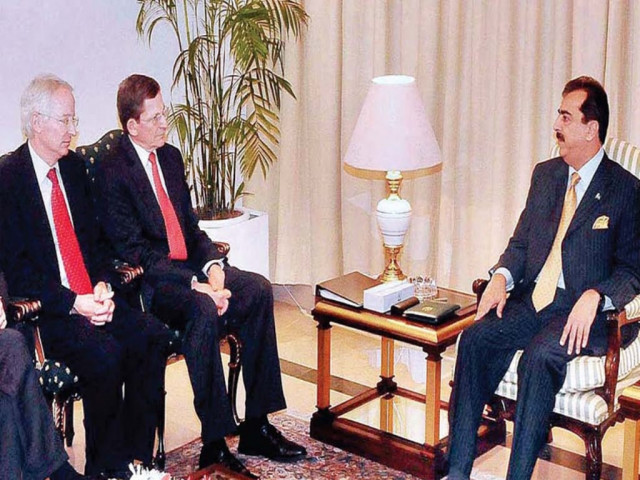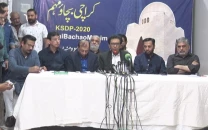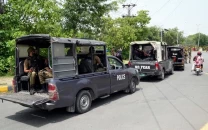Afghan reconciliation: Grossman moves to dispel Pakistan’s fears
US concedes mistake of abandoning Pakistan after the Soviet withdrawal from Afghanistan.

President Barack Obama’s pointman for Pakistan and Afghanistan Marc Grossman on Wednesday tried to dispel mounting fears that Washington was trying to bypass Islamabad in the Afghan reconciliation process.
At a meeting with Prime Minister Yousaf Raza Gilani, Grossman said that the US does not contemplate any reconciliation in Afghanistan without Pakistan. The meeting came amid reports that the US was considering keeping Pakistan out of the loop on the reconciliation process.
The fourth round of the trilateral talks which were held between Pakistan, Afghanistan and the US in Islamabad on Tuesday failed to produce any tangible results due to simmering tensions between Islamabad and Washington.
According to a statement issued by the prime minister’s press office, Gilani emphasised that the US, Afghanistan and Pakistan should be on the same page to deny any legroom for militants to capitalise on, and Islamabad was looking forward to a positive outcome of the forthcoming conference in Istanbul and Bonn.
He also underlined his apprehensions about Pakistan once again being left ‘high and dry’ to suffer the fallouts from the US policy in Afghanistan. Ambassador Grossman conceded that it was a mistake to abandon Pakistan after the withdrawal of Soviet troops in early 1990s and assured that the same would not be repeated. He agreed with the prime minister on the need for the repatriation of the 3.5 million Afghan refugees still on Pakistani soil.
The upcoming visit by US Secretary of State Hillary Clinton to Pakistan would be an opportunity to exchange views on a host of issues and forward movement between the two countries was essential in containing the militant threat, he added.
The prime minister reiterated the joint resolve of Pakistan’s and Afghanistan’s leaderships to root out militancy as both had suffered immensely due to insecurity.
He added that Pakistan was working to ensure Afghanistan’s connectivity in the region through the Trade Agreement (APTA). Furthermore, he said that it was extremely important for Pakistan to see a sovereign, stable and prosperous Afghanistan.
Ambassador Grossman agreed with the prime minister’s views about the criticality of economic development as an essential part of an Afghan-owned reconciliation process.
The prime minister said that he was happy that his idea of three ‘Ds’ – dialogue, development and deterrence – was being realised as a way forward by the international community to achieve stability through economic development.
Published in The Express Tribune, August 4th, 2011.



















COMMENTS
Comments are moderated and generally will be posted if they are on-topic and not abusive.
For more information, please see our Comments FAQ